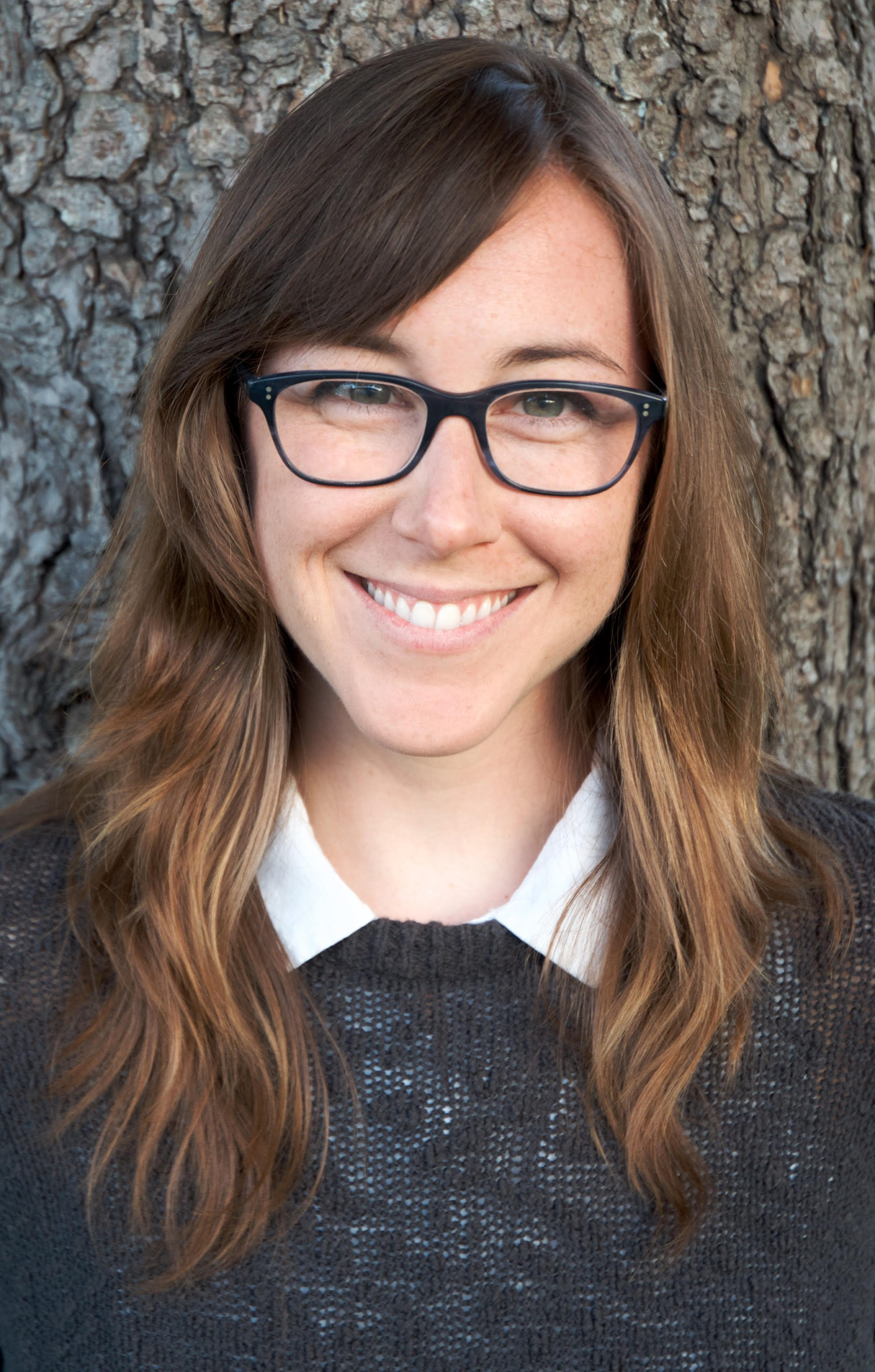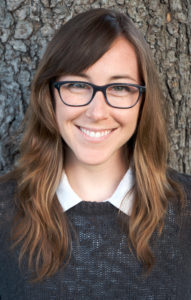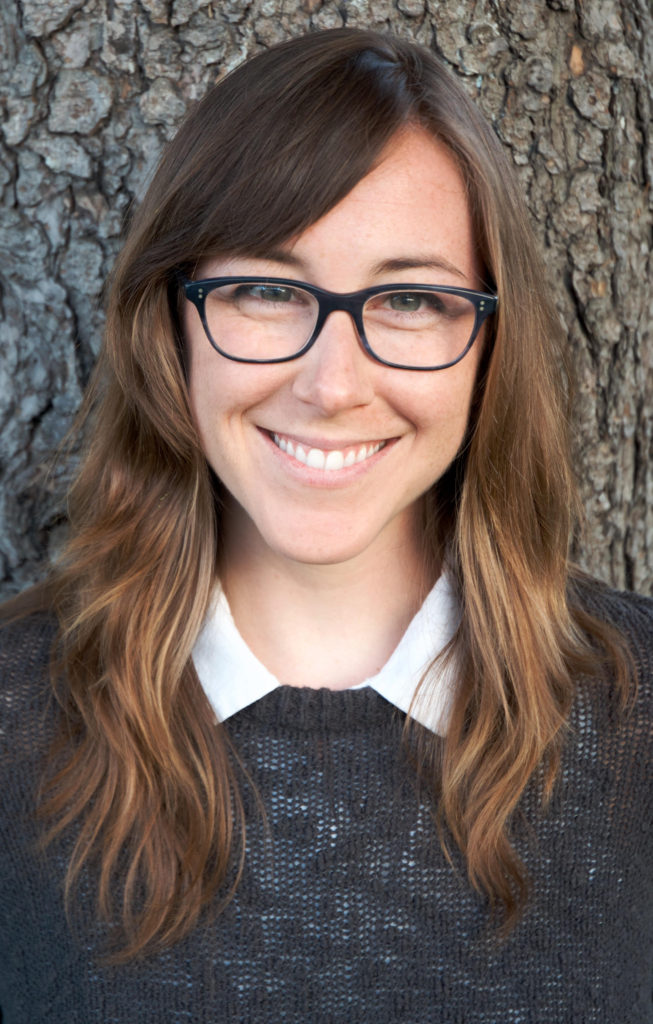
Alexa Eisenberg
Originally from the Detroit suburbs, Alexa Eisenberg graduated from the University of Michigan with a Bachelor of Arts in environment and communications studies in 2012 before attending the University of Miami for a Master’s of Public Health in Epidemiology. She is now a doctoral candidate at the U-M School of Public Health.
More Info
Eisenberg has focused her research efforts around housing policies in the city of Detroit, particularly concerning the inequitable consequences of home tax foreclosures. In the process, she has collaborated extensively with the Detroit Urban Research Center, U-M’s Poverty Solutions, and the United Community Housing Coalition, using the methods and principles of community-based participatory research. This research method functions through collaboration between community members and academic stakeholders to address research questions and outcomes that seek to benefit the people and places being studied.

Alexa Eisenberg, doctoral student at the School of Public Health, studies the intersection of health and housing.
Why did you come back to Michigan from Florida? How did the prospect of working in Detroit influence you?
People who study cities generally have a strong affinity for the places where they work. Part of the draw in coming back to Detroit is that I am from the metropolitan area. Even though my whole family has left, it was always my plan to return to Michigan and have a career doing work within and for the city of Detroit. Perhaps more importantly, health and housing work in Detroit is ultimately racial justice work. I grew up in the suburbs of Detroit, and what I do is motivated by the overt and disturbing inequities that exist in the Detroit metropolitan region, from which I have benefitted directly. Coming from my place of privilege that started close to the city, I hope that my work can bring some material benefit to the people of Detroit.
Why is the community-based participatory research method important for your work in Detroit?
As a white person doing research in the city of Detroit, I acknowledge that there’s an inherently unequal power dynamic. The principles and methods of community-based participatory research can never fully address this, and I continue to learn how to be a more accountable researcher every day. But I am drawn to this approach because it requires researchers to ask questions and design studies in partnership with members of the community who have been doing the work, and who know what type of research is needed. I’ve never been a researcher solely driven by my own curiosities, and by practicing community-based participatory research, the research is more relevant, and ideally more impactful. For instance, dissemination of the research is more effective when community groups are involved. All of the research components are important, but public-facing dissemination can be hugely influential for action.
Can you discuss what you have been working on recently?
My time is divided mostly between my dissertation work — which is focused broadly on the connection between serial displacement and health inequity in metropolitan Detroit — and my work as a graduate student researcher with U-M’s Poverty Solutions. The work that I do with Poverty Solutions is done closely with Detroit’s United Community Housing Coalition, where we focus on applied housing policy research and program evaluation. In some form, all of my current work revolves around the injustice of property tax foreclosures in the city of Detroit. In 2017, I worked with both Poverty Solutions and the United Community Housing Coalition on a project that examined Detroit’s Poverty Tax Exemption, a program that exempts residents with low incomes from their property tax obligation. We found that 40,000 people were eligible for the program, and only about 4,000 were receiving it. Those findings actually coincided with an NAACP and ACLU lawsuit against the city, and we were able to offer suggestions to policymakers through our findings. My more recent work looks at some of the enduring consequences of tax foreclosure. In an upcoming report, my colleagues and I find that young children living in homes that were purchased in bulk by investors at foreclosure auctions are more likely than other children to experience lead poisoning. This demonstrates just one of myriad ways in which serial displacement can erode the health and well-being of black families in Detroit, perpetuating both housing and health injustice.
You’re clearly interested in tax foreclosure and housing issues in Detroit. Since you are in the School of Public Health, how does health play a role in your research?
Health and housing are deeply connected in so many different ways. There’s already plenty of research demonstrating that losing your house or experiencing housing insecurity is bad for your health. When I conduct health and housing research in the city of Detroit, my intention is not to develop a causal link between housing and health; it is more so to address the upstream housing inequities that are shaping patterns of health inequity. Ultimately, there many forms of social and economic oppression that are taking place in the city, and all of these issues overlap to influence health. Unfortunately, health inequities in Detroit are already very severe, and in addition to housing having an impact on health, health status can have implications for housing as well. I think we need to focus our efforts on making housing healthier, not proving over and over again that these two things are related.
What are you optimistic about for Detroit after researching health and housing in the city?
Housing and health problems in Detroit are deeply structural. It’s never really about bad people in government, but a broader institutional structure that deprives the city of resources. Unfortunately under these conditions, public officials tend to make short-sighted decisions that do not prioritize long-term residents. And there are many problems that local officials cannot fix without state or even federal involvement. I am inspired by the organizers, activists, and residents I have met through my research and my life in Detroit, who fight every day for housing justice. There are advocates at every level – from the neighborhoods to the U.S. Congress. My hope is that more policymakers will listen to the needs of lifelong Detroiters, and value those needs in their decision-making.


